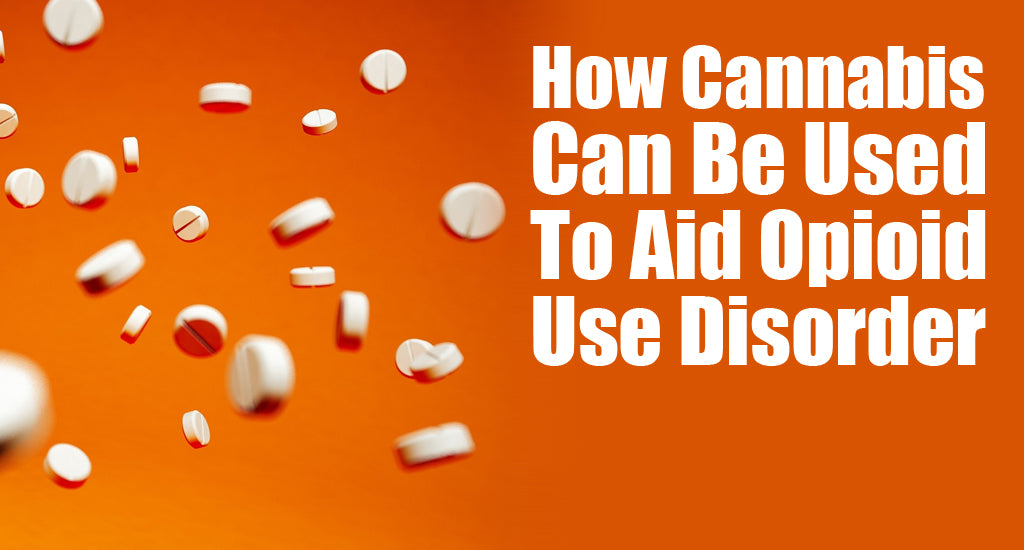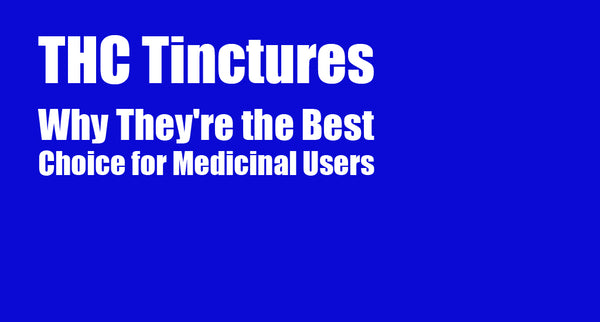
How Cannabis Can Aid in Opioid Use Disorder
Addiction to any substance is a tragic matter for everyone involved, including the users and their loved ones. Few drugs are as catastrophic to one's life as opioids, which have become a major problem in the United States. In 2019, an estimated 10.1 million people, ages 12 or older, misused opioids or opiates, including heroin and prescription opioids.
What are Opioids?
Opioids encompass a class of drugs that includes heroin, the synthetic variant fentanyl, and legally prescribed pain medications such as oxycodone (OxyContin, Percocet), hydrocodone (Vicodin), codeine, morphine, and more. Opioids function by binding to mu-opioid receptors on nerve cells in the brain and body to alleviate pain. While they provide highly effective pain relief, they can quickly become addictive and destructive substances.
Signs of Opioid Addiction
Identifying opioid addiction can be challenging, especially when it begins with a legitimate prescription for pain management. The gradual blurring of lines between medication, recreation, and abuse often occurs. Signs of opioid addiction include:
- Inability to control opioid use
- Uncontrollable cravings
- Drowsiness
- Changes in sleep patterns
- Severe weight loss
- Frequent flu-like symptoms
- Changes in exercise habits
- Isolation from family and friends
- Stealing from family, friends, or businesses
Opioid Withdrawal
Discontinuing opioid use can be intimidating due to the ensuing withdrawal period, a significant reason why many addicts avoid seeking help. Opioid withdrawal involves a set of physically uncomfortable and painful symptoms, some of which can be life-threatening. Symptoms include:
- Agitation
- Anxiety
- Muscle aches
- Increased tearing
- Insomnia
- Runny nose
- Sweating
- Yawning
- Abdominal cramping
- Diarrhea
- Dilated pupils
- Goosebumps
- Nausea
- Vomiting
How Does Cannabis Help Addicts?
Some studies suggest that cannabis may help alleviate opioid withdrawal symptoms. A 2021 study found that CBD could reduce dominant symptoms, such as severe anxiety or depression, insomnia, pain, muscle spasms, and nausea/vomiting. Additionally, it revealed that people with pain took fewer opioid painkillers when using CBD.
Reports from users also indicate that many people are using cannabis to help with opioid abuse. However, it's important to note that cannabis alone is not a viable option for treating serious cases of opioid use disorder (OUD) or eliminating addiction entirely. It is recommended to use cannabis in conjunction with Medication-Assisted Treatment (MAT) to ease withdrawals.
Medication-Assisted Treatment (MAT)
MAT relies on drugs that block opioid receptors, tricking the brain into thinking it has already received the desired high after prolonged opioid use. Peter Grinspoon, an opioid use disorder survivor and an addiction medicine physician at Massachusetts General Hospital, advocates for marijuana use for OUD but recommends it only as an adjunct to MAT. Currently, three FDA-approved drugs are used for treating opioid use disorder, and MAT can be administered at specialized facilities or under physician supervision.
Transitioning from Opioids to Psychedelic Therapy: A Promising Path
In recent years, a groundbreaking approach to addressing opioid addiction has emerged through the use of psychedelics, notably substances like psilocybin, also known as "magic mushrooms," and ayahuasca. This unconventional treatment approach has shown promise in helping individuals transition away from opioids and overcome addiction. It's essential to emphasize that this therapy should only be administered by trained professionals in a controlled and therapeutic setting due to its potentially intense and transformative nature.
-
The Psychedelic Experience: Psychedelics like psilocybin and ayahuasca can induce powerful, introspective experiences that often result in a profound shift in one's perspective and mental state. These substances are believed to work by altering brain connectivity and facilitating a deep exploration of one's thoughts, emotions, and underlying issues contributing to addiction.
-
Breaking the Cycle: For individuals trapped in the cycle of opioid addiction, the psychedelic experience can offer a unique opportunity for introspection and self-discovery. It can help them confront their addiction head-on, uncovering the root causes and providing a fresh perspective on life.
-
Reducing Cravings and Withdrawal Symptoms: Emerging research suggests that psychedelics may help reduce cravings for opioids and alleviate withdrawal symptoms. These substances have the potential to reset the brain's reward system, making it easier for individuals to break free from the grip of addiction.
-
The Importance of Professional Guidance: Psychedelic therapy should never be attempted without the guidance of trained professionals. The therapeutic process involves preparation, the actual psychedelic experience, and integration sessions afterward to help individuals make sense of their journey and apply newfound insights to their lives.
-
Legal and Ethical Considerations: The legal status of psychedelics varies by jurisdiction, and their use for addiction treatment is still a developing field. It's crucial to be aware of the legal and ethical aspects surrounding the use of psychedelics in addiction therapy and to seek out reputable practitioners and programs.
-
Supporting Ongoing Recovery: While psychedelic therapy shows promise, it is not a standalone solution for opioid addiction. It should be integrated into a comprehensive treatment plan that may include therapy, counseling, and support groups to provide individuals with the tools and ongoing support they need to maintain their recovery.
Transitioning from opioid addiction is a challenging journey, and it's essential to explore various treatment options and consult with healthcare professionals to determine the most suitable approach for each individual. Psychedelic therapy is an evolving field, and its potential benefits in addiction treatment are still being studied. As more research is conducted and regulations evolve, it may become a valuable tool in the battle against opioid addiction, offering new hope and avenues for recovery.
Final Words for Those Struggling:
If you are battling opioid addiction, whether due to abuse of drugs like heroin and fentanyl or excessive prescription drug use, seek professional help. Overcoming any substance addiction is challenging, but opioids may be particularly daunting when it comes to detoxing. While undergoing treatment, consider cannabis as an option to alleviate withdrawal discomfort and maintain abstinence from opioids.
Conclusion
Cannabis, while showing potential in alleviating opioid withdrawal symptoms and supporting recovery, should be regarded as a supplementary tool rather than a standalone solution. Its role in addiction treatment is most effective when integrated into a comprehensive program under the supervision of healthcare professionals. Opioid addiction is a complex and deeply ingrained issue, and addressing it requires a multifaceted approach.
The importance of professional guidance cannot be overstated, as healthcare experts can tailor treatment plans to the individual's unique needs, ensuring that cannabis is used safely and effectively. Moreover, cannabis should be considered one element of a broader strategy that may include therapy, counseling, support groups, and, when necessary, medication-assisted treatment. Recovery from opioid addiction is undeniably challenging, but with the right support and a well-rounded approach, individuals can regain control of their lives, embark on a path to sobriety, and work toward a healthier, more fulfilling future.



